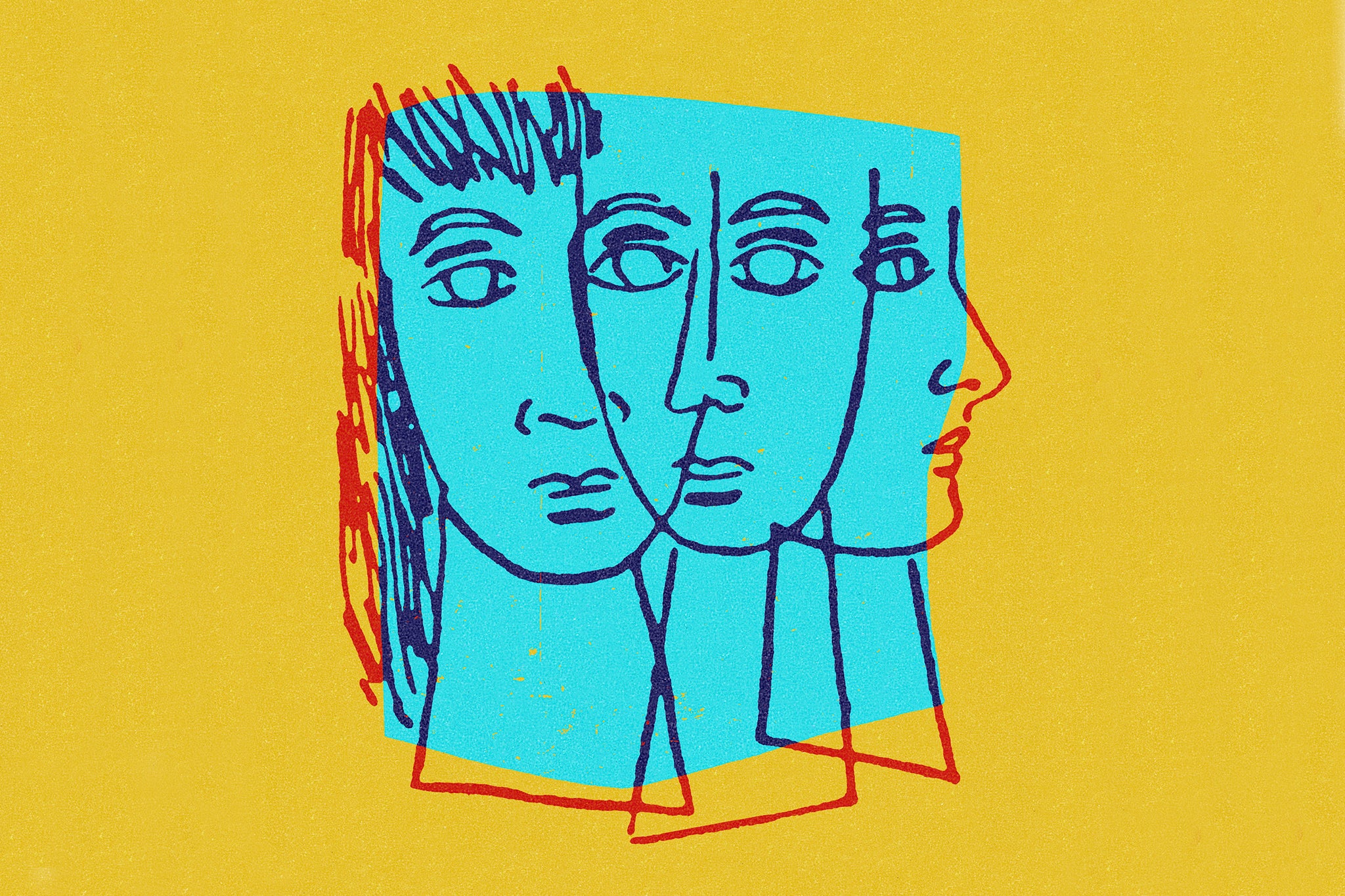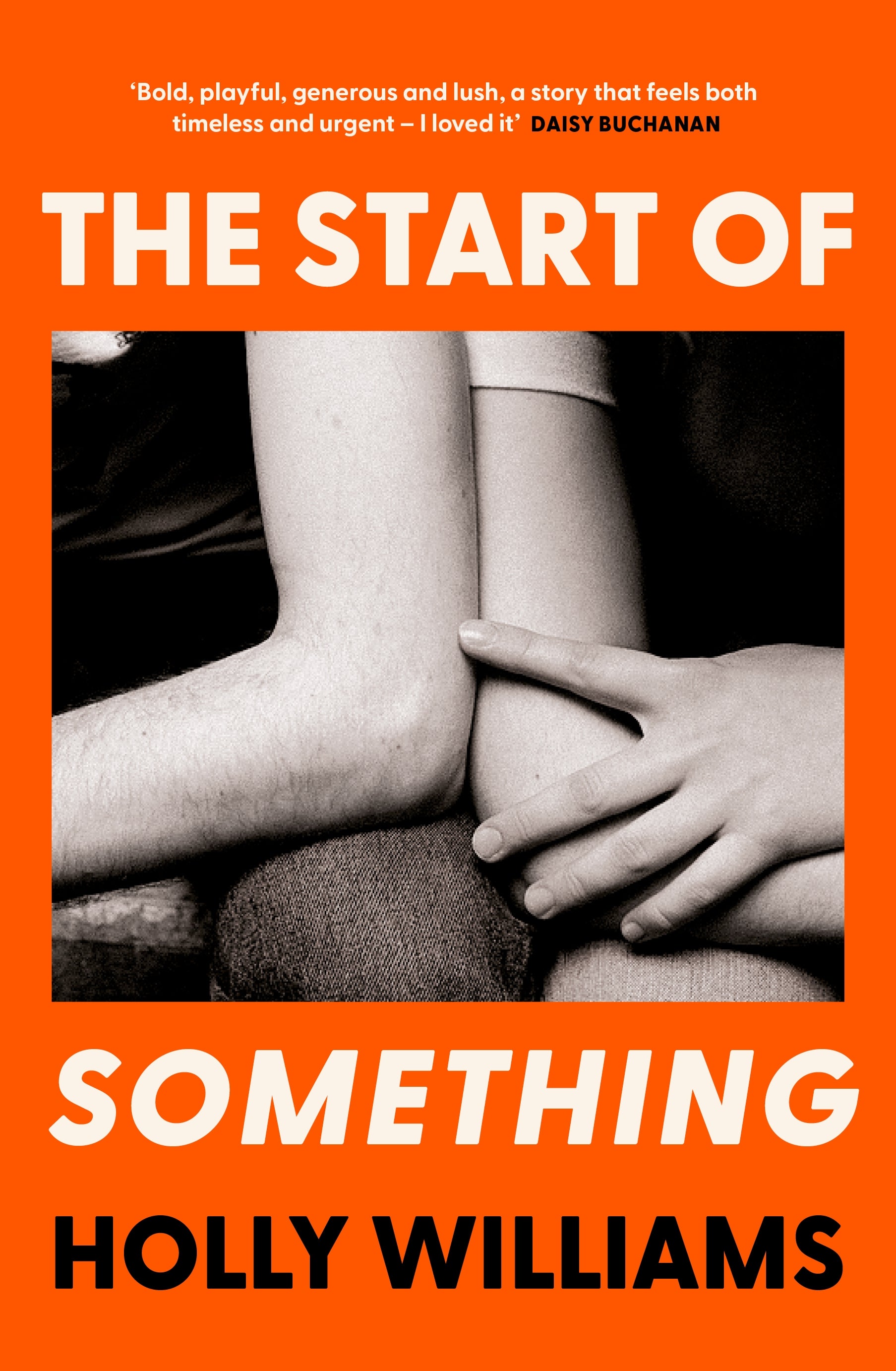The Independent's journalism is supported by our readers. When you purchase through links on our site, we may earn commission.
An open relationship taught me everything I needed to know about love
Burnt by the end of a conventional relationship, Holly Williams leapt head-first into the world of ethical non-monogamy, only to discover for the first time what she really wanted from sex, love and a partner

Sleeping with someone other than your partner is the ultimate betrayal – the worst thing you can do in a romantic relationship, right? Not necessarily. In fact, I’d go so far as to say that the best lessons I’ve learned in how to be a good partner, and have a good relationship, came from exploring non-monogamy. I’m not here to recruit for polyamory, I should say. I’m now in a happy, basically monogamous relationship. But starting out non-monogamous actually proved a pretty fantastic bedrock for long-term, committed love.
Ethical non-monogamy is the umbrella term for having more than one romantic or sexual partner, with the consent of all involved. Within that, you have everything from a couple who indulge in occasional snogs with strangers through to fully polyamorous relationships, where people may have profound commitments to several people simultaneously.
It’s something that many of us seem to be increasingly curious about. A YouGov survey revealed in January that 16 per cent of the UK are open to open relationships – and this spring, it seems like everyone has been talking about polyamory. Molly Roden Winter’s More: A Memoir of Open Marriage led the charge, detailing the writer’s “life-changing journey of self-discovery”. Cue much discussion in the media, from how-to guides in New York magazine to a deep-dive in The New Yorker.
Open relationships are increasingly seen across pop culture too – in series such as Succession and Riverdale, to sharp millennial novels including Raven Leilani’s Luster and Lillian Fishman’s Acts of Service. Challengers, Luca Guadagnino’s forthcoming Zendaya-starring tennis drama, teases a love triangle in its trailer. And it was surely only a matter of time before polyamory’s potential got exploited by reality TV: lo, Couple to Throuple arrived in February.
I’m about to add to the pile, too: my second novel, The Start of Something, tells the story of 10 characters via 10 interlocking sexual encounters. I wanted to explore the different shapes sex, love, and relationships can take in the modern world. For one queer, non-binary character, being poly is a key part of their identity; a straight married couple have opened up because they want more sex.
Running through The Start of Something is the belief that what makes love work is honesty – it doesn’t matter the structure, as long as you can communicate within it. This is hardly a new or radical take, I know. But – and it’s a big but! – it can still be alarmingly difficult. And while you might assume that opening a relationship would make it thornier, my own experience suggests the opposite – exploring non-monogamy made me a better partner.
When I was growing up, polyamory was still considered kinky or cranky. So when I got into a serious relationship in my twenties, obviously it was monogamous, because I thought that was what being in a relationship meant. That was the point.

It ended because of my unfaithfulness. Cue crushing, terrible guilt – and a new certainty that monogamy was Not For Me. I clearly couldn’t manage it, and anyway, it was an unrealistic expectation imposed by patriarchal society. I needed to be free: no one was ever going to tie me down again!
A pinball of pent-up horniness, I rebounded my way through Tinder, Feeld, and the nightclubs of east London. But I didn’t know how to communicate my need for freedom, and so often took a don’t-ask-don’t-tell approach. I told myself I didn’t owe anyone anything, but this was also a weird form of people-pleasing and conflict-avoidance: I didn’t want to disappoint! (How arrogant!) Or to make them feel sad or insecure. Or for them to reject me. Desiring more than one person is a natural urge, but one that society has told us (especially as women) is wrong. Polyamory can still be framed as feckless, slutty, selfish… On top of all that, I was also suffering from your bog-standard British emotional constipation.
Still, there were clues that “just not mentioning it” was not working amazingly: the racing heart, the niggling guilt… And I did hurt people, by not being honest, and not really taking their feelings into account.
It seemed the solution must be noisy self-declaration, then: telling people loudly about other dates, or that I never wanted a closed relationship. Looking back, I also cringe at this. I was so terribly pleased with myself that – spot a pattern? – I left little space for the other person’s feelings. Either they had to leap on board the great, enlightened non-monogamy train, or I’d dismiss them as naive, old-fashioned cowards. Choo-choo!
It wasn’t until I started seeing people who were already in their own open relationships that I really understood what it took to make things work. What I learned was pretty simple: the more we properly talked about what we were looking for, without any moralising or persuading, the easier and safer it felt. If you’re gonna do ethical non-monogamy, my god you’re also gonna do a lot of talking. You can’t muddle through on vibes and hunches – there have got to be explicit boundaries, because there are a thousand ways to “do” non-monogamy. It meant planning before certain situations, and debriefing after: Are we all happy going out together? Will I stay over afterwards? So, how did it feel…?

Well, it all felt uncomfortable at first, and then it felt liberating. Have you ever been trapped in circular discussions with a partner, where you expect them to silently know what you need and if they don’t, you subtly punish them? There was way less of all that. Fewer games. Almost no sulks. Dating poly people made me more upfront, more realistic, less embarrassed about my true desires; it made me think harder about what’s behind feeling jealous, or insecure.
When I began dating my current partner Tommo, I was still seeing someone else. But then… as we fell in love, we also fell into monogamy. I believe that romantic love is not a finite resource: you can love more than one partner, like you can love more than one child, or friend. However, time is a finite resource. I soon found I wanted to spend more of it with Tommo than with anyone else. But I maintain that the open beginning was a great basis for the relationship. From the off, we learned to be calm, transparent, and clear in our communication. Our trust in each other is not predicated on exclusivity – but on honesty.
It helped us ditch any assumptions of what a relationship “should” look like; we established ground rules about “cheating” that felt less oppressive, where it wouldn’t necessarily be an unforgivable, relationship-ending betrayal. Rather than forbidden fruit, it’s just something that’d require long and possibly difficult conversations…
Knowing this makes me feel both more free, and more secure. What we have is important, but so is being realistic about the fact that we might change. We make sure we have annual relationship check-ins. We talk about what’s working and what’s not. We ask the big questions. Including whether or not we should open up. I don’t want to just slot into a societally-approved, till-death-do-us-part model – I want to allow for movement, and growth.
Because for me, monogamy shouldn’t be the default: it should be a question. As I explore in my novel, there are a wealth of different ways to be in love. Right now, I’m happy spending all my romantic energy on just one person – but I think the reason that works is because there was never the assumption it had to be that way.
‘The Start of Something’ is published by Orion on 11 April
Join our commenting forum
Join thought-provoking conversations, follow other Independent readers and see their replies
Comments
Bookmark popover
Removed from bookmarks